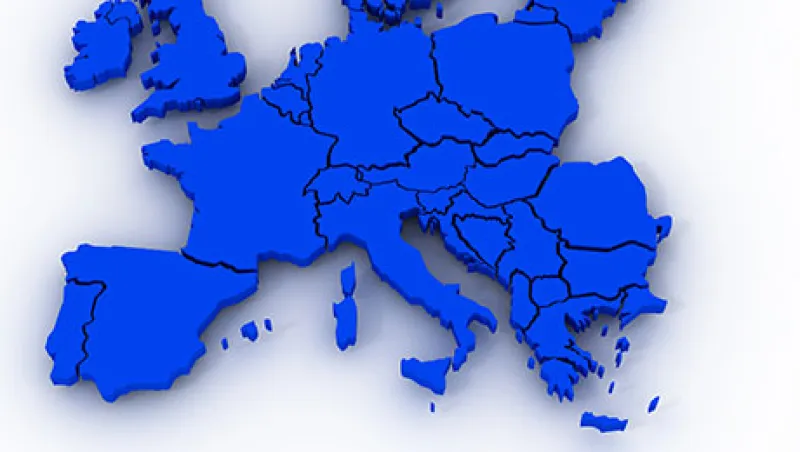With their ongoing debt crises, the peripheral euro zone states have treated investors to many twists and turns over the years — none more so than Greece.
These troubles could present buying opportunities whenever the price of assets in peripheral states falls in response to bad news from the Hellenic Republic. Greece is in political and financial crisis this week, with its citizens slated to vote in a Sunday, July 5, referendum on whether to accept a proposal by international institutions to lend it enough money to avoid default. The country’s left-wing government, led by Prime Minister Alexis Tsipras, has condemned the still fluid plan as too harsh.
Against that dramatic backdrop, investors see potential mostly in Italy and Spain, but they disagree on where the most enticing assets lie.
“There’s some value to be had from peripheral debt,” says Jon Jonsson, senior portfolio manager of the $130 million Neuberger Berman Global Bond Absolute Return Fund in London. But Jonsson isn’t bullish on peripheral government bonds. “There will be a lot of headline risk in peripheral markets even if we get a solution, so other areas offer better value at this point,” he says. “If Greece is forced closer to the exit door, or is even forced to open that door” — leaving the euro zone after defaulting on its loans — “you would have to reprice peripheral risk.”
This year Jonsson has boosted his fund’s investment in euro zone high-yield debt, including that of companies based in peripheral nations. Jonsson believes such issues offer good value because of the prospect of strong growth in peripheral and other euro zone states.
Marie-Anne Allier, head of euro aggregate bond management at €954 billion ($1.06 trillion) Amundi in Paris, expresses an ambivalent view on peripheral sovereign debt: “It all depends on the horizon assumptions of your investment.” Allier is doubtful about opportunities for investors who want to hold bonds for periods of a week or two, given the likelihood of more volatility as discussions over Greek debt continue.
For those with a fairly long horizon of more than a year or two, “you have to buy peripherals today,” she says. Allier’s reasoning: Through quantitative easing and emergency purchases of the sovereign debt of countries that stick to agreed-upon programs, the European Central Bank has created “a good backstop. Everything is in place to ensure that the euro zone will not be affected by a Greek exit.”
But when it comes to long-term buy-and-hold investors, Allier is wary of exploiting the Greek crisis by purchasing peripheral bonds: “If your horizon is five or ten years, I don’t know if there are buying opportunities.”
Allier is confident that if Greece exits the euro zone, the ECB can step in to prevent a spike in other peripheral sovereign yields driven by fears that more countries will exit. But she worries that yields for some euro zone nations, including Italy and even France, could spike in several years if low economic growth continues, stopping them from keeping a lid on debt-to–gross domestic product ratios and fiscal deficits. “I’m not sure that the ECB can have a QE program lasting ten years,” Allier says.
Paul O’Connor, co-head of multiasset investment at £89 billion ($140 billion) Henderson Global Investors in London, is relatively relaxed about the Greek crisis. A euro zone exit “will not cause generalized financial tension,” O’Connor maintains.
Despite recent increases in peripheral and other euro zone bond yields because of fears about Greece, he finds little of value in euro zone bond markets. Take Spanish ten-year debt: As O’Connor points out, with a yield of 2.1 percent in late June, it offers less than the dividend yields of many attractive European companies.
With that in mind, O’Connor is more interested in euro zone stocks — both inside and outside the periphery — that have suffered owing to worries over Greece. “If you think the Greek crisis is not going to be systemic, then you should look at it as a reasonable entry point into euro zone equities,” he says. In the past few weeks he’s bought Euro Stoxx 50 index futures. The index’s value has fluctuated between 3,429 and 3,829 since April, closing at 3,469 on June 29.
Joseph Oughourlian, London-based chief executive of Amber Capital, a $1.5 billion hedge fund firm headquartered in New York, is equally bullish on equities. In recent weeks the $430 million Amber Global Opportunities Fund has bought several peripheral stocks hit by the Greek crisis, including Italian banks and other cyclical equities in Italy and Spain.
For the periphery and the euro zone in general, “you’ve got very strong ingredients for economic growth, including lower oil prices, a lower euro, QE and an upturn in the credit cycle,” Oughourlian says. “People are spending too much time worrying about Greece. I don’t see any contagion whatsoever to the rest of Europe.”






